
We’re a finalist, but we need your help!
February 13, 2023
The Helipeno Challenge
February 17, 2023In June 2022, a group of volunteers from Great Western Air Ambulance Charity (GWAAC) went to Ukraine to teach first responder care to civilians. Now that some time has passed, we caught up with three of the volunteers — Specialist Paramedics in Critical Care (SPCC) Pete Reeve, Matt Robinson and Callum Sutton — to get their thoughts and reflections on the trip. We also wanted to know whether they would do it all again.
Why did you volunteer?
Pete: I felt helpless when the invasion first happened. We all saw it happening and couldn’t do anything to help. Then the first opportunity for a trip out came up and I just felt lucky that I had a skill set that could be useful. As it was, on that occasion I wasn’t needed, and the fact that the children couldn’t be rescued hit hard. So when the second trip came up in June it would have taken quite a lot to stop me from going.
Matt: It was the feeling of helplessness and knowing that we had some skills that could help.
Callum: Watching the events in Ukraine unfold on the news, seeing many people displaced, and traumatically injured made me feel a sense of helplessness. I was initially worried that if we went out to help, we’d actually be a burden on them, due to the ongoing situation and the possible extra strain we would have on their resources, however we safeguarded against this by liaising with Ukrainian authorities to ensure we did not add burden to their system and helped in a way they needed and wanted. We had a skill set that was heavily in demand and it felt right to offer that.
What were your thoughts leading up to the trip?
Pete: At first, I was just massively keen to go, and excited. In the week before, I spent four days getting all the gear ready and putting the final details, like travel insurance, in place. I think I was too busy to stop and think about what it actually meant to go. I did have to make a will and I remember sitting in the lounge quietly making plans for my funeral while the rest of the family was watching tv. Then, when I got up on the day, I remember the moment when I could decide not to get dressed and just go back to bed; that moment took a while, but I chose to get dressed. And in my head, that meant I was definitely going — it was back to being excited.
Matt: I have no military background and it was the complete unknown for me, but as plans started to form and discussions took place, I felt reassured that there was a structure to the trip and security was in hand. Also, it was up to us how far we went into Ukraine, so I felt we had some control.
Callum: There was an element of concern and uncertainty. At the end of the day, we were going to a country at war and a situation that was very fluent and changing every day. But we planned the best we could for different situations. I didn’t really tell anyone until I got back as I knew it would cause them extra worry.
Was it what you expected?
Pete: I don’t really know what I expected. I was surprised by just how much life was continuing as normal, especially walking around Lviv that first evening with street artists playing songs and games with the crowds. We had expected to train some military and police staff but that changed to civilians while we were out there.
Matt: I felt a bit alarmed initially about the size of the country. It also surprised me that people were getting on with their lives; some places looked war-torn, and others were fine.
Callum: I didn’t have any expectations other than to train. I was expecting the worst and hoping for the best. I was surprised by how upbeat the Ukrainians were and how well they were coping with the situation. Everyone was cracking on; one of the translators for the training was an artist – she was knitting ghillie suits for snipers in her evenings to help the defensive effort. There was a resolve to win, to defend their country and to live as normally as possible, whilst contributing to the war effort.
Any stand-out memories?
Pete: Mostly just the spirit of the people. We have such a comfortable life in comparison whereas Ukraine has consistently been invaded over the history of Europe and this seems to have resulted in an incredible strength of character.
Matt: It’s a very hardy nation. They’re keen to get on with their lives. The amount of damage to property and life is disheartening but they’re just getting on with things.
Callum: I remember, during training, how everyone was getting stuck in, even a great-grandmother — she got her white skirt and shoes plastered in fake blood.
Another trainee came back on the second day to be a translator; she said she’d taught her family overnight what she had learned from us. I’m still in touch with the translator and I’ve had feedback that they are carrying the kit we gave them (dressings etc.) in their handbags. We can only help a limited number of people so the hope is that the people we can assist will pass what they learn on to everyone they know and the impact increases.
What impact did the trip have on the trainees?
Pete: The Ukrainians seem to really enjoy making speeches and at the end of each day someone from the group spontaneously got up and stood in front of everyone to thank us for what we’d done. That was pretty amazing. How did it make me feel? There were a few tears in my eyes on both days; seeing how grateful they were was something really powerful.
Matt: We delivered very hands-on practical training, so everyone went away with valuable skills; some came up to say thank you for also giving them the confidence to use these skills.
Callum: The best feedback was hearing how they were going to pass on their new skills to others. We can’t treat all the patients in Ukraine, but we can influence the care that others can provide.
Best and worst bits?
Pete: The Ukrainians have a phrase: “Slava Ukraini” which translates to something like “Glory to Ukraine.” At the end of each training session, I got to close the training down with that phrase. It received a huge cheer and a round of applause, and just for a moment, it felt like both groups, us and them, really understood what we were doing, and they felt hugely supported. So that feeling was just amazing.
The worst bit was leaving, without a doubt. There was a kind of survivor’s guilt where I knew I was coming home to safety and leaving them all behind in a war zone. None of them chose for this war to come to them and we got to walk away to safety, and they are still there.
Matt: The best bits were seeing people come away feeling like they’ve gained something. The worst bit was feeling like we could do more; we didn’t really feel ready to return back to the UK. Also, the long journey home by bus… it was so long.
Callum: For me, the best bit was how welcomed we were. They were very happy and excited to see us, and the feedback about the training and how they were passing it on to their families was great.
It was also horrible to see the devastation. Whole towns were turned into rubble, schools, homes, hospitals, everything; where just weeks before people had been living life and thriving now there were just shells of buildings and burnt-out wreckages.
Would you go again?
Pete: In a heartbeat.
Matt: Yes.
Callum: Yes.
How has the experience affected you?
Pete: I think it has opened-up my global view. Work is so busy and there’s so much to do that it becomes easy only to see the problems on your doorstep, but this trip has opened my eyes to the bigger things going on. I’m trying not to be that guy who only ever talks about the time he went to Ukraine, but I know that the ripples of the trip will go on for a long time for me.
Matt: You can’t help but relate to the people we met out there. They’re just like us.
Callum: I will remember the people that have to live there in that devastation. And I will remember their strength of character and determination to carry on.
Further reflections?
Pete: I think we were seven guys that wanted to rescue a whole country. It’s easy to think that we did so little, compared to what needs to be done, and to become disheartened about the impact we had, but it’s really important to remember the good we did do.
Matt: Humour was an important factor that got us through the trip; that, and our bond as a group. We all know each other so well. The camaraderie and the humour helped us cope with things just like it does back home when we’re dealing with critical care on a daily basis. One funny moment was getting through the polish border with our lineup of manikins — I had a dismembered body (part of a manikin!) in my bag. Luckily the security guy found it funny.
Callum: We could have sent equipment and not taught them how to use it, or we could have taught them and not provided the kit, but that would be a bit pointless. We did both, and we also taught them how to improvise if they don’t have the kit to hand.
Read more about how our crew made a difference in Ukraine here and keep an eye open on our social channels for details of a follow-up volunteer trip to Ukraine.
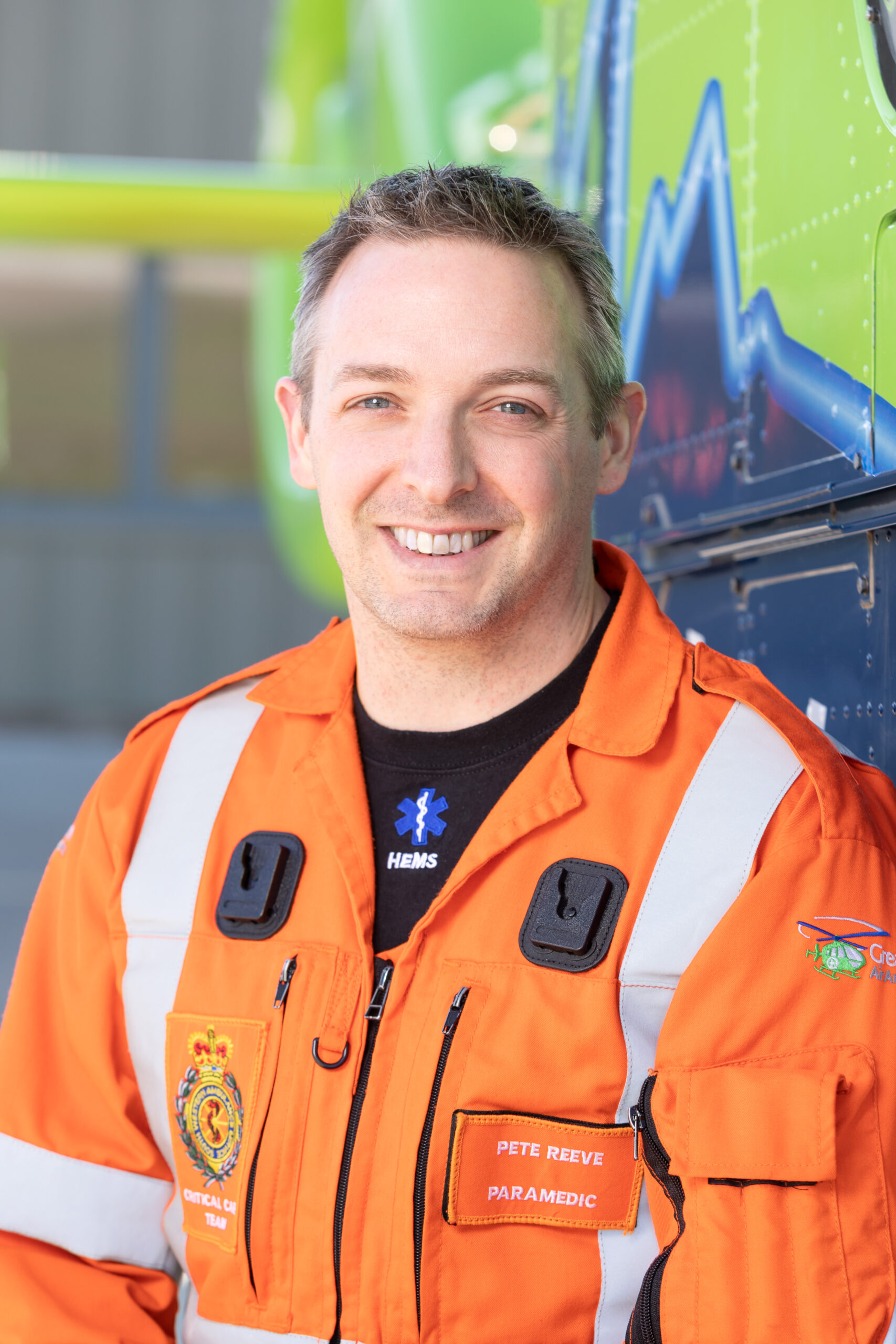
Pete Reeve
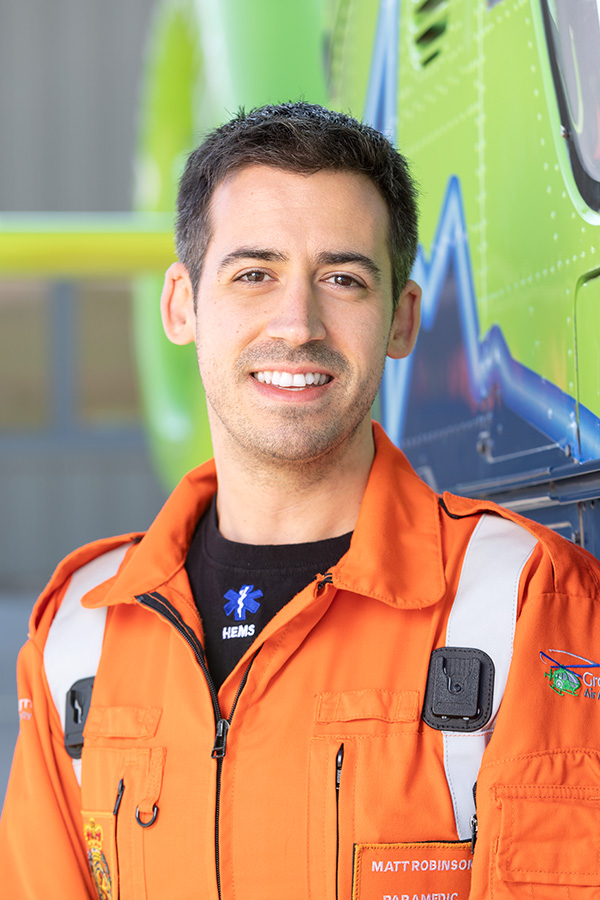
Matt Robinson
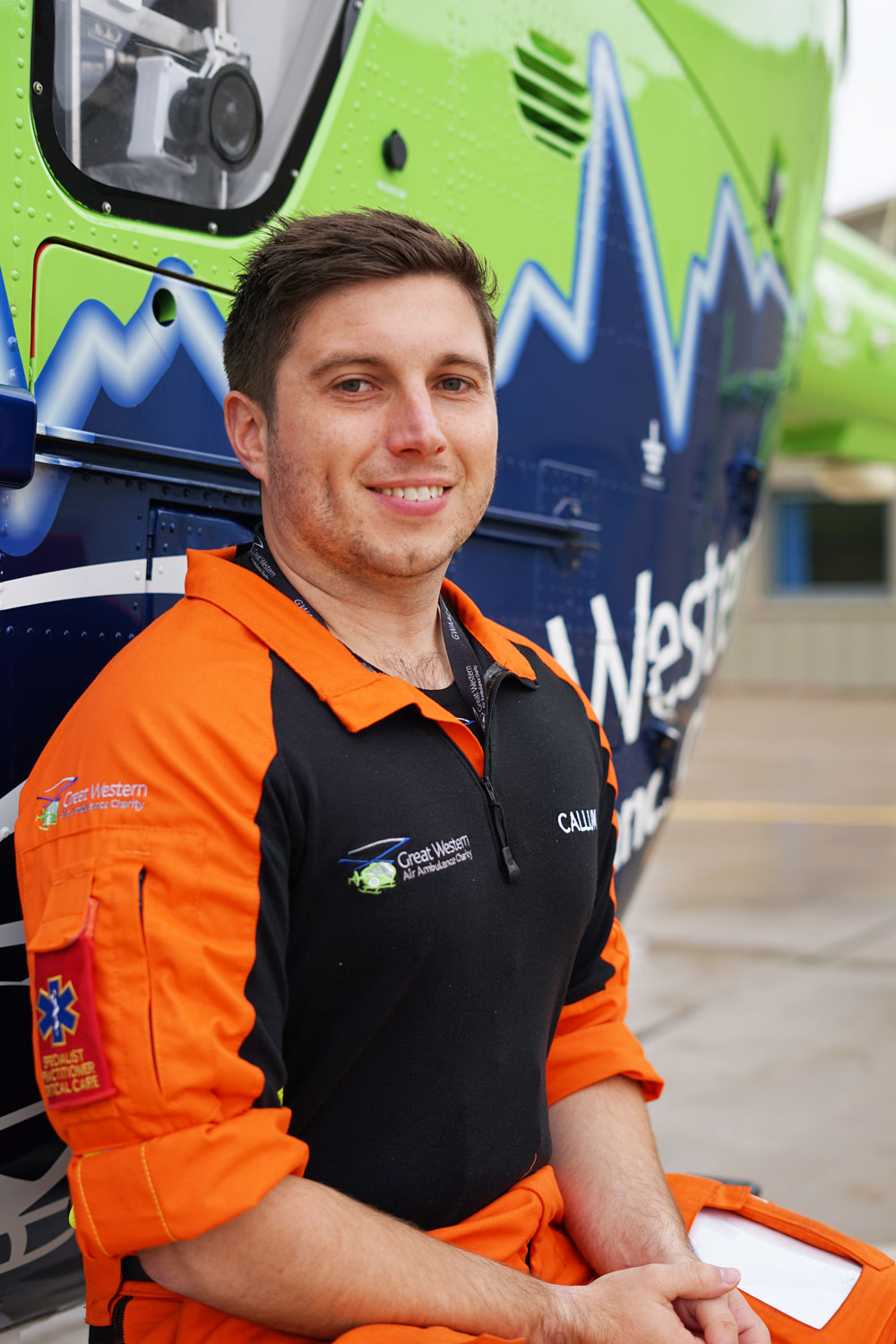
Callum Sutton
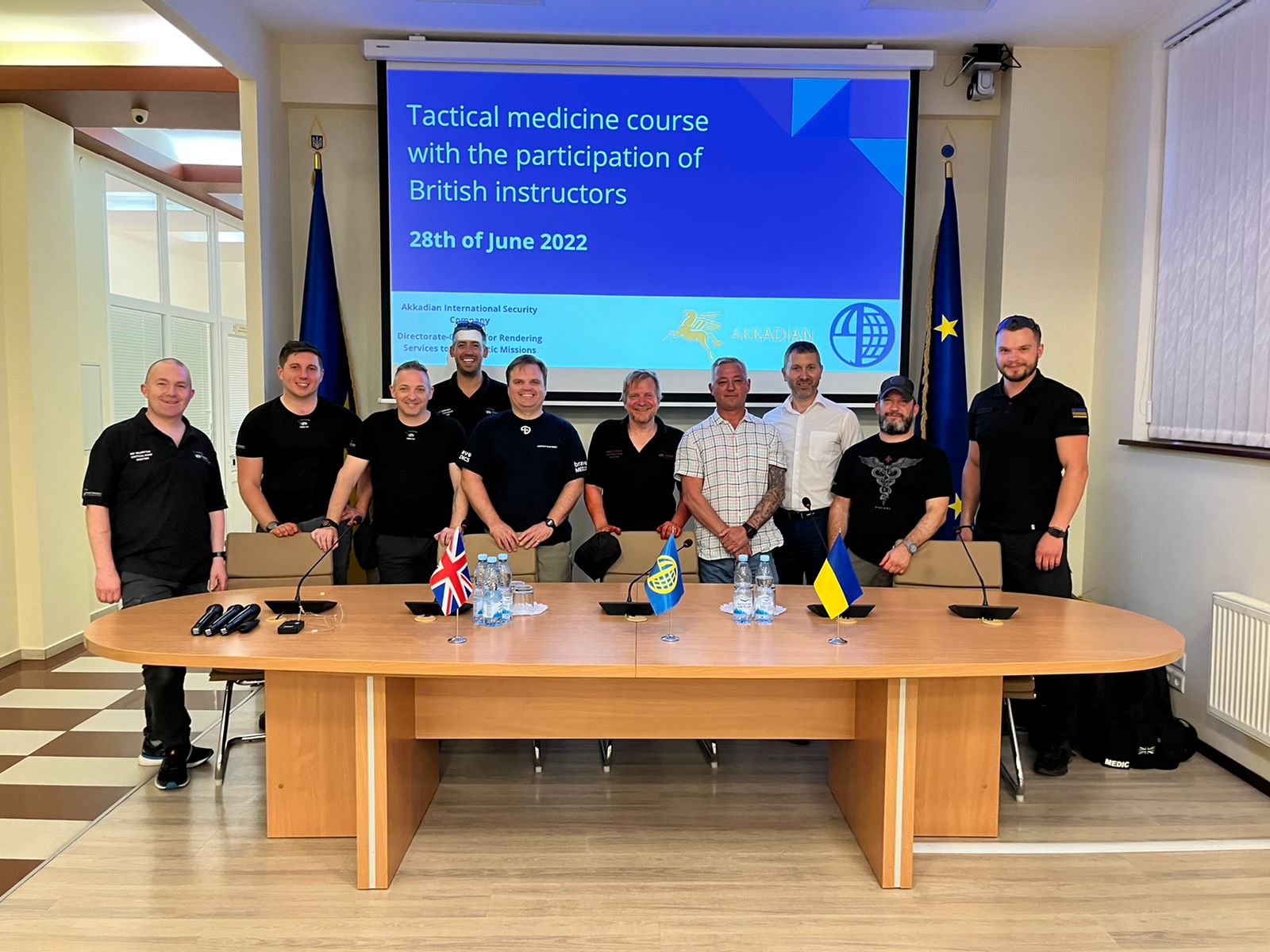
GWAAC Volunteers in Ukraine
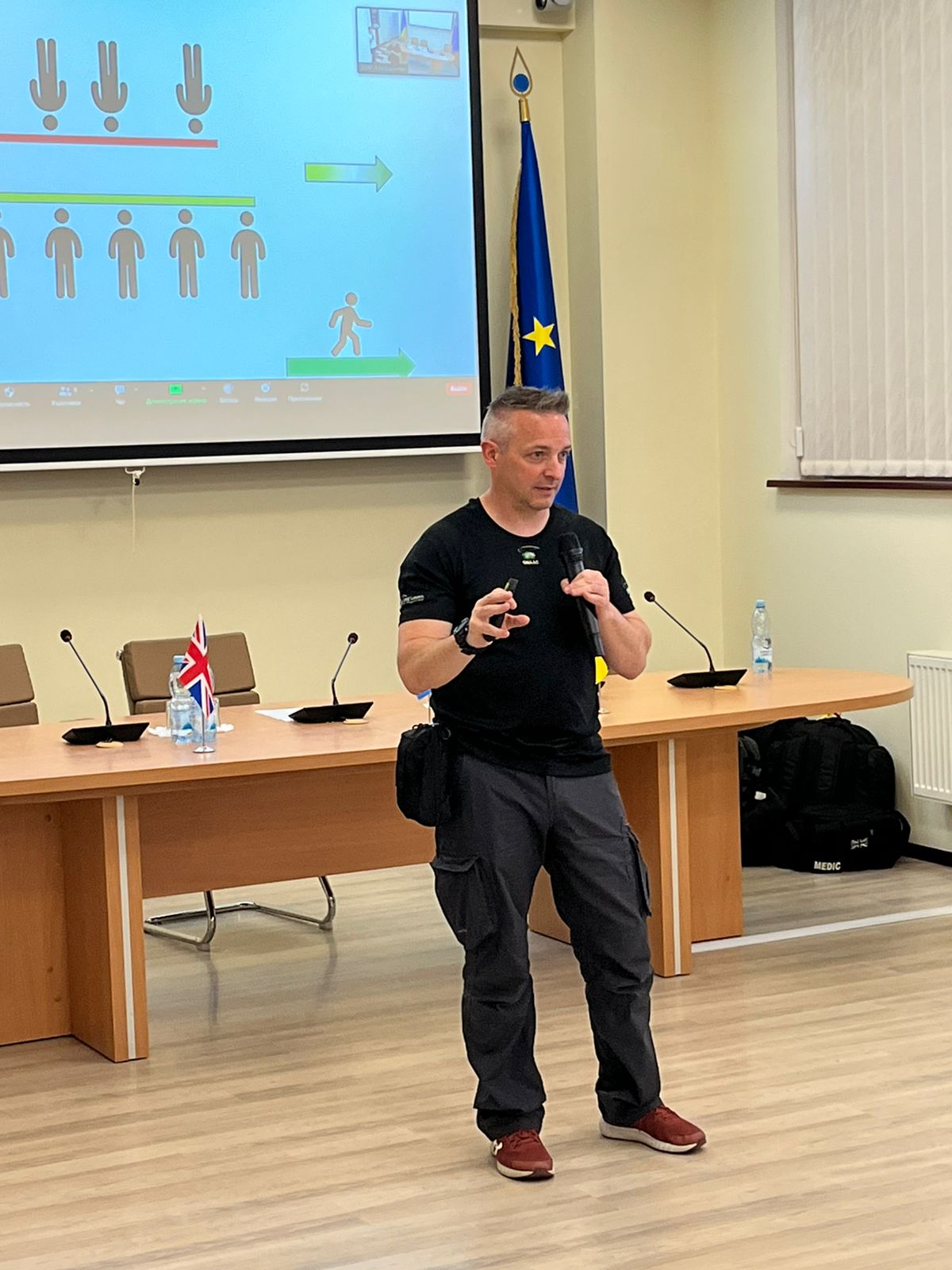
Pete presenting to locals
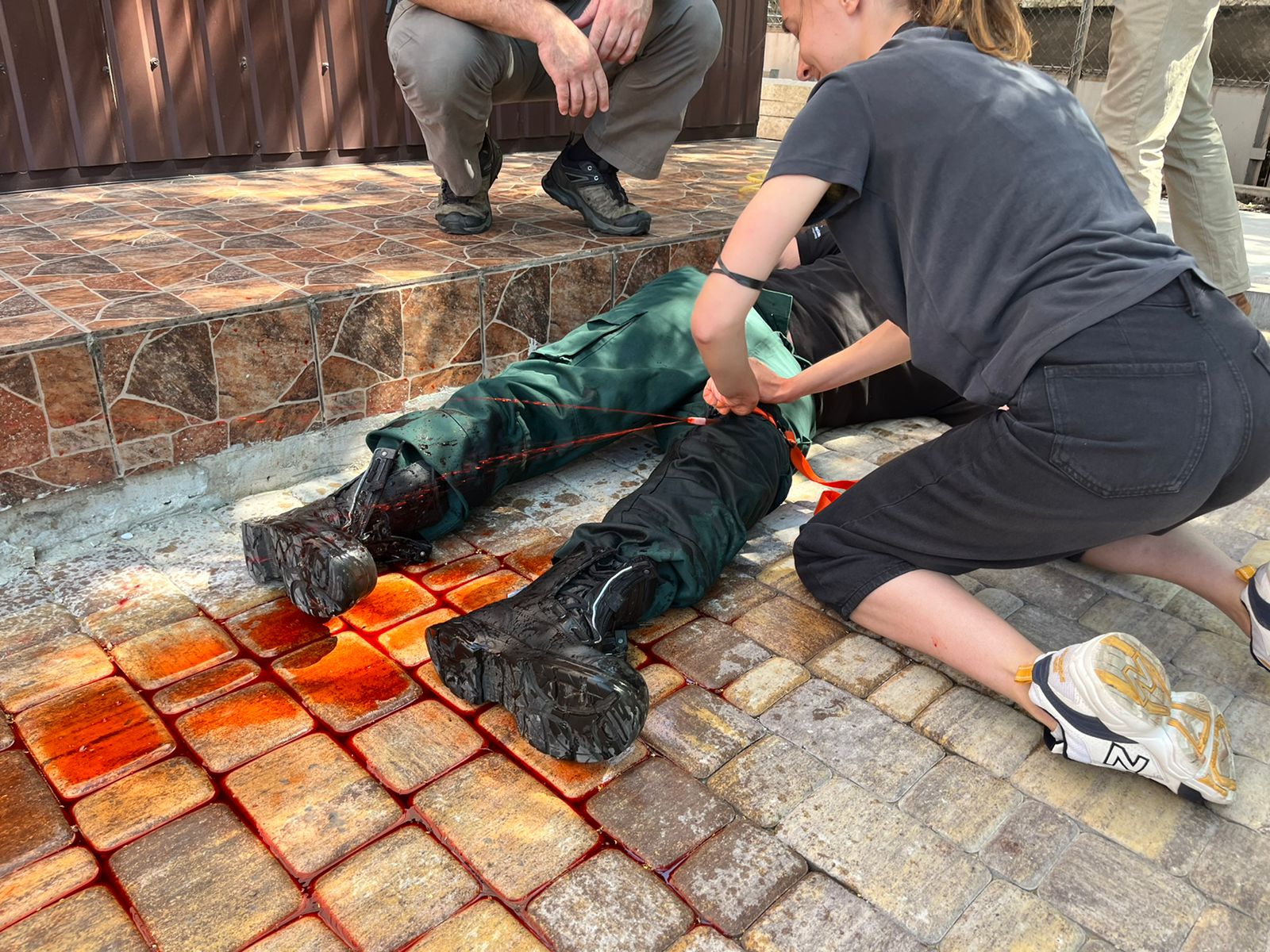
Teaching Ukrainian citizens vital skills whilst using soft drink as fake blood



